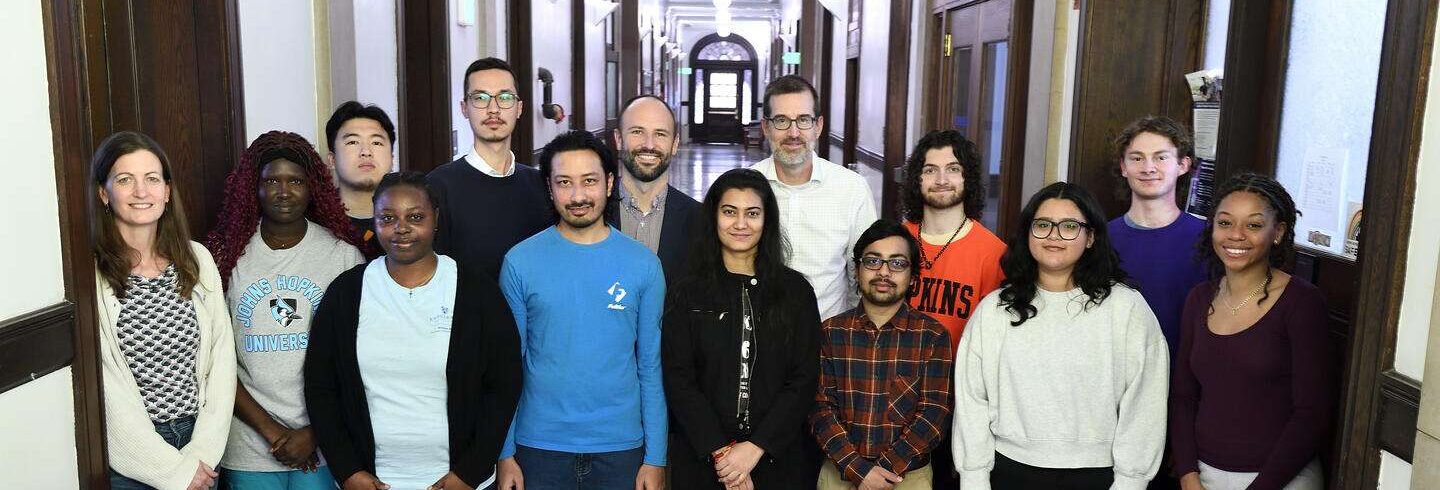Johns Hopkins University
Prof. Shields has taught in the Dept. of Civl & Systems Engineering at Johns Hopkins University since 2013. During that time, Prof. Shields has taught:
- Structural Dynamics
- Uncertainty, Reliability, and Decision Making
- Solid Mechanics and Theory of Structures
- Probabilistic Methods in Civil Engineering and Mechanics
- Introduction to Uncertainty Quantification
- Civil Engineering Undergraduate Research Lab / CaSE Research
In particular, the Civil Engineering Undergraduate Research Lab was developed by Prof. Shields with the support of the National Science Foundation, through the NSF Early CAREER Award. This course is a requirement for all Civil and Systems Engineering undergraduates and provides an introduction to the research process and university research. This course inspired the development of two courses that Prof. Shields developed on Coursera.

Fundamentals of Scientific Research Under Uncertainty
This course teaches the fundamentals of scientific research. We approach the research process as a means of systematically reducing uncertainty and demonstrate how conducting a scientific investigation can be posed as an exercise in Bayesian uncertainty quantification. We begin by exploring the scientific landscape to understand the different types of research, where they are conducted, how they are supported, and why each of these types of research is important. We then formalize scientific inquiry and the scientific method and elaborate the research process and its scientific merits. Basic concepts in probability theory are introduced leading to a conceptually simple presentation of Bayes’ Rule. We then illustrate how Bayes’ Rule provides a mathematical framework for the research process. We place an emphasis on the role that research plays in our daily and professional lives and how research skills can help us think critically, whether you’re in a technical field or not. Exercises are designed to help you improve your research skills and think more scientifically.
Introduction to Uncertainty Quantification
Uncertainty Quantification (UQ) is the science of mathematically quantifying and reducing uncertainty in systems of all types. Students will learn the nature and role of uncertainty in physical, mathematical, and engineering systems along with the basics of probability theory necessary to quantify uncertainty. The course provides an introduction to various sub-topics of UQ including uncertainty propagation, surrogate modeling, reliability analysis, random processes and random fields, and Bayesian inverse UQ methods.

